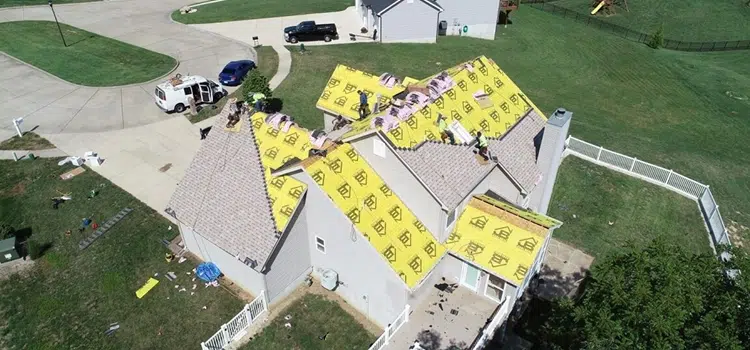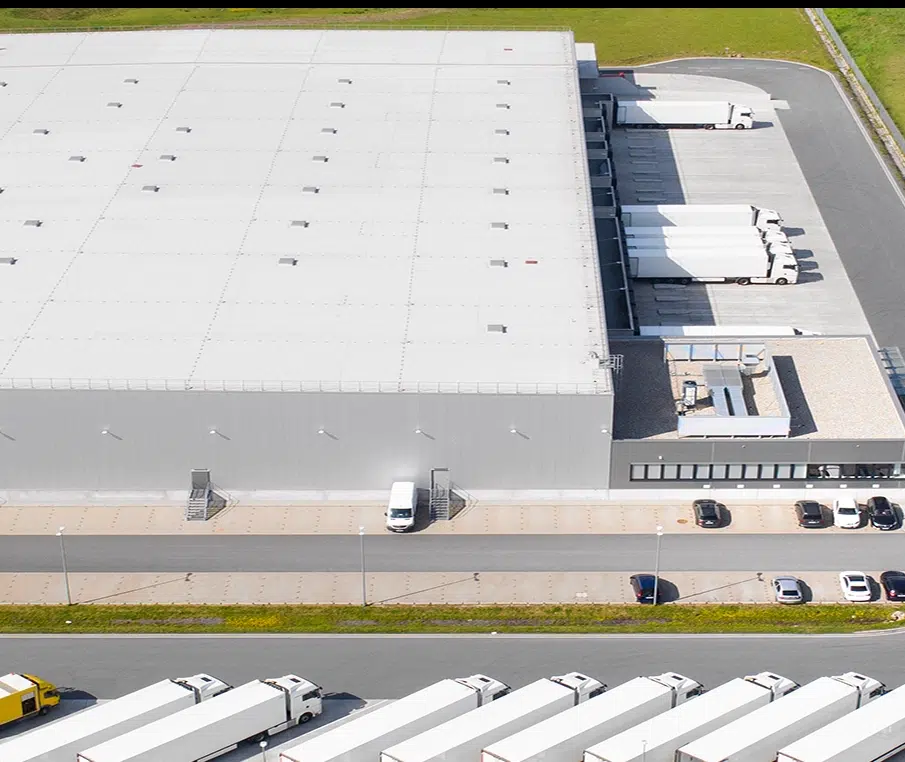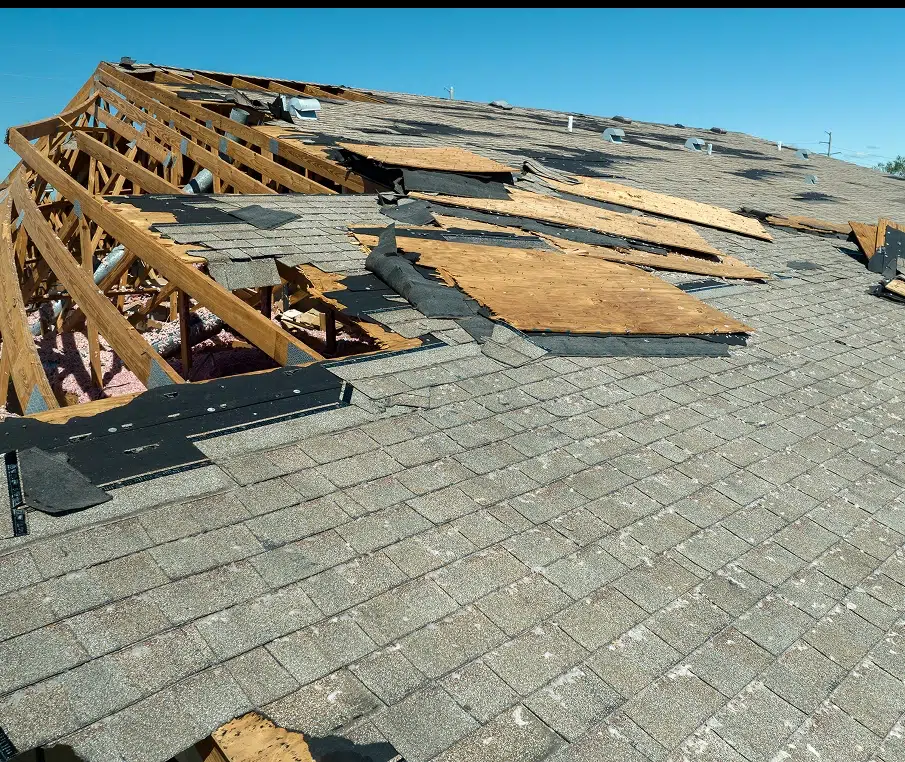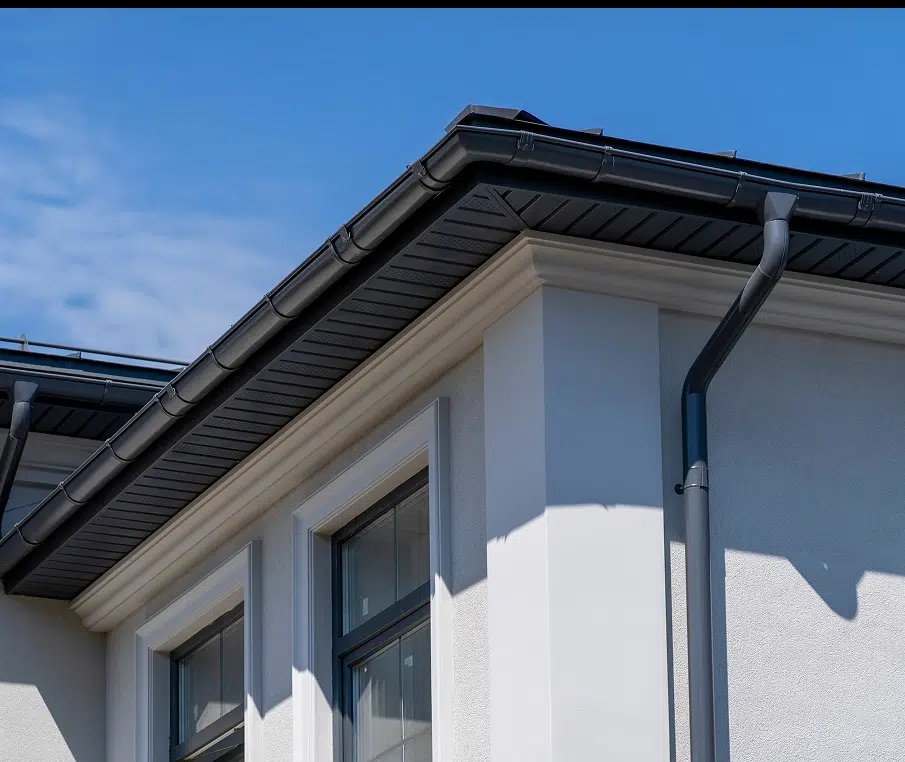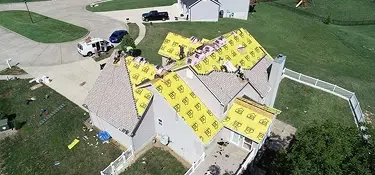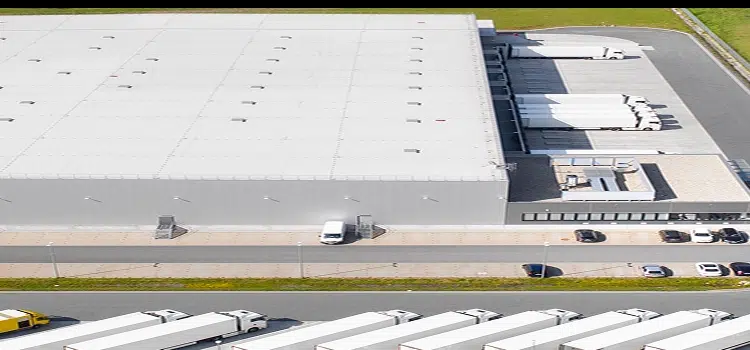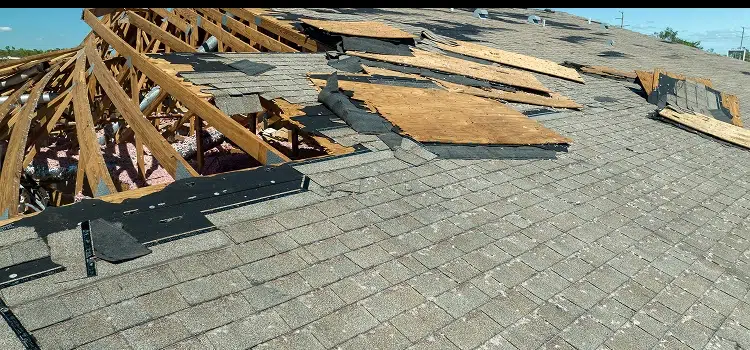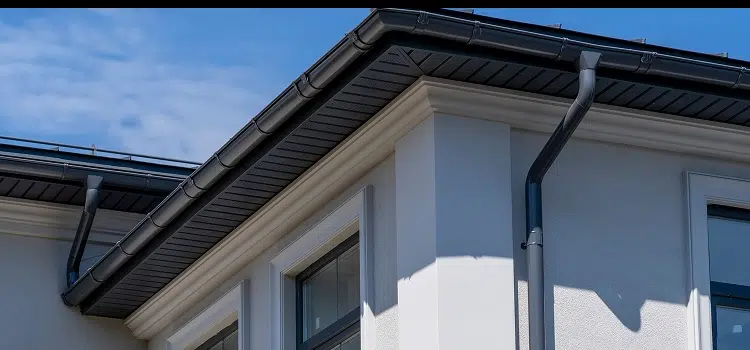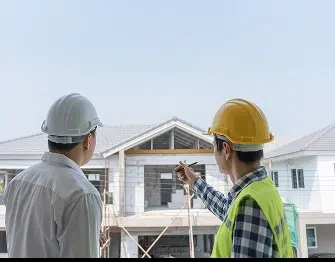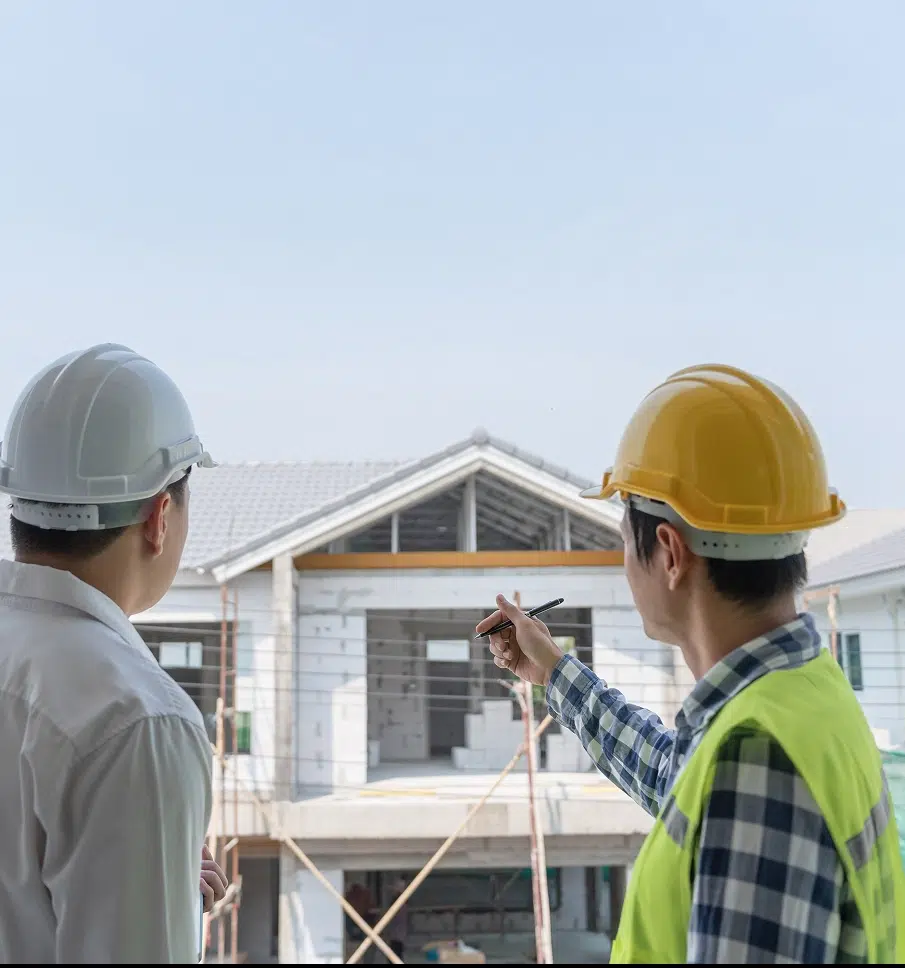Residential Flat Roof in Springfield, MO
Flat roofs are a type of roofing where the roof deck is level or nearly level. Residential flat roofing is most commonly used on porches, sunrooms, and other types of additions to a home. Many different types of materials can be used for residential flat roofs. Each type of material has its own benefits and drawbacks, so it is important to consult with a professional flat roof contractor to find the best option for your home in Springfield, Missouri. Proper installation and maintenance are essential to extending the life of your flat roof.
Types of Residential Flat Roof Materials
While traditional roofing materials like tiles and shingles are great for the average pitched roof, they are a poor fit for flat roofing. Flat roofs aren’t very effective at removing standing water, so it tends to puddle and pool on the surface of your home. If you were to use these traditional roofing materials, water would quickly begin to leak into your home. Flat roofing requires materials designed specifically for the kind of standing water these roofs are likely to face. Using these materials will provide much better protection.
Of all the flat roofing options on the market, John Beal Roofing recommends TPO roofing. TPO (thermoplastic polyolefin) roofing is a flat roofing solution that has continued to grow in popularity since it was first introduced in the 1990s. It offers exceptional protection at a more affordable price. Made of rubber, ethylene, and propylene; TPO is bonded using a variety of fillers, such as talc or fiberglass. When combined, these materials make TPO one of the strongest solutions available to flat roofs. TPO is also offered in three different widths, thereby reducing the number of seams. The fewer seams, the lower the change that water could find its way into your home. The average lifespan of TPO roofing is 15 to 20 years.
Other materials for residential flat roofs include single-ply membranes (such as EPDM or PVC), built-up roofing (BUR), and modified bitumen.
EPDM (Ethylene Propylene Diene Monomer) is a single-ply rubber roofing membrane, installed using an acrylic bonding agent. This material is often used in residential flat roofs because it is easy to install and provides good protection against leaks. Because it is easier to apply, homeowners save time and money during installation. One disadvantage of EPDM is that its rubber surface tends to heat up in the sun, which can have a negative impact on the heating & cooling bill of the homeowner. This should be considered when the homeowner is considering which roof might be best for their home in Springfield.
PVC (Polyvinyl Chloride) is another great residential flat roofing material. While more expensive than EPDM, PVC roofing is also more durable. This roofing solution is known to be able to withstand up to 300 pounds per inch, exceeding the industry standard of 200 pounds per inch by 50%. The strength of this material adds to its lifespan. While other flat roofing lasts 15 to 20 years, PVC can last as long as 30 years. This is an incredible amount of time, given the damage inflicted on many flat roofs. Another benefit of PVC roofing is that it is more energy efficient. PVC is offered in the color white, which can reflect up to 78% of the sun’s rays away from your home, rather than absorbing it like EPDM.
BUR (built-up roofing) is a more heavy-duty option that is often used in commercial flat roofing. It is an older method of flat roofing but remains effective. BUR is often called “tar and gravel roofing” because of the materials used to make it. Because BUR is extremely heavy, it is not as commonly used for residential flat roofs, reserved for commercial properties that can bear the weight.
Modified Bitumen is made from a combination of tar, gravel, rubber, and elastomers. Installing modified bitumen can be a difficult and expensive process, which makes it more applicable to commercial use. Modified bitumen is a type of built-up roofing that uses asphalt as the base layer. It is then topped with one or more additional layers of materials, such as fiberglass or polyester.
Silicon Spray is applied to the surface of your flat roof. It offers better leak protection and is easier to install than rubber or tar. However, the materials used in this spray can be quite costly.
Are flat roofs ok for houses?
Yes, in fact, residential flat roofing has a few advantages over traditional pitched roofs. First, the flat surface makes them safer and more convenient to inspect. Second, flat roofs are more energy efficient than pitched roofs. They absorb less heat in the summer and retain more heat in the winter, which can help to reduce energy bills. Finally, flat roofs can provide additional living space. A flat roof can be used as a deck or patio, providing a unique outdoor space for entertaining or relaxing.
How long do residential flat roofs last?
While residential flat roofs have a reputation for being short-lived, they can last up to 30 years depending on the materials they are made out of. The weather conditions in the area also affect a flat roof’s lifespan. With proper care and maintenance, a flat roof can provide homeowners with many years of use.
Best Residential Flat Roofing Contractor in Springfield, MO
If you’re interested in learning more about which residential flat roof might be best for your home in Springfield, reach out to the professionals at John Beal Roofing. We’ll provide you with a FREE estimate, so you can make an informed decision about what’s right for your home. Our estimates also come with the John Beal Low Price Guarantee! If you can find a better quote anywhere, we’ll match it or pay you $100! See offer for more details*


